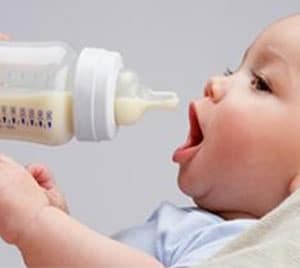 Some women know right from the start whether they want breastfeeding or formula feeding, while others struggle. They will want to weigh the advantages and disadvantages for breastfeeding vs formula feeding before deciding. Most child health organizations advocate breastfeeding and “breast is best” is a commonly used phrase. There is no doubt that breastfeeding is a wonderful way to nourish a newborn as breast milk provides numerous benefits.
Some women know right from the start whether they want breastfeeding or formula feeding, while others struggle. They will want to weigh the advantages and disadvantages for breastfeeding vs formula feeding before deciding. Most child health organizations advocate breastfeeding and “breast is best” is a commonly used phrase. There is no doubt that breastfeeding is a wonderful way to nourish a newborn as breast milk provides numerous benefits.
If you are still debating whether to breastfeed or bottle-feed during your confinement pregnancy or after childbirth, you might want to consider these questions:
- What does your confinement nanny or care provider suggest? Your confinement nanny or care provider will likely be very supportive of breastfeeding unless you have specific health issues that make formula feeding a better choice.
- Do you understand both methods? Many women have misconceptions about breastfeeding. Learn as much as you can about feeding your baby. Seek out expert advice from your gynecologist if needed.
- Do you plan to return to work? If so, how will that impact breastfeeding? Does your place of work have accomodations available where you can use a breast pump?
- How does your partner feel about the decision? The decision is ultimately yours but it is a good idea to take your partner’s feelings into consideration.
- How have other others you trust and respect made their decisions? If they had it to do over again, would they make the same choices?

Some women who choose the bottle instead of the breast are bothered by their decision. They worry they are not being a good mother or putting the needs of their child first. If you are among this group, please don’t think this negatively as it is not good for you and baby. Feeding, regardless of how it is delivered with breast milk or formula, breast or bottle, will promote intimacy. You only need to know that your child will get the nutrition he or she needs to grow and thrive with both options.
In any case, whether you choose to breastfeed or bottle-feed, during the first few days after your baby’s birth you may find it difficult to interest your newborn in eating. The first feedings can sometimes be difficult. If this is the case, you are not alone. Remember that your baby is still learning and so are his or her parents. If things are not going well, or you are concerned that your baby isn’t getting enough nourishment, talk to your baby’s nurse, care provider or confinement nanny. Some babies are slow eaters the first few days, but soon they catch on and breastfeed or bottle-feed with enthusiasm. Over the first week, a newborn may lose about 10 percent of his or her birth weight and will gain gradually that weight back and more!
